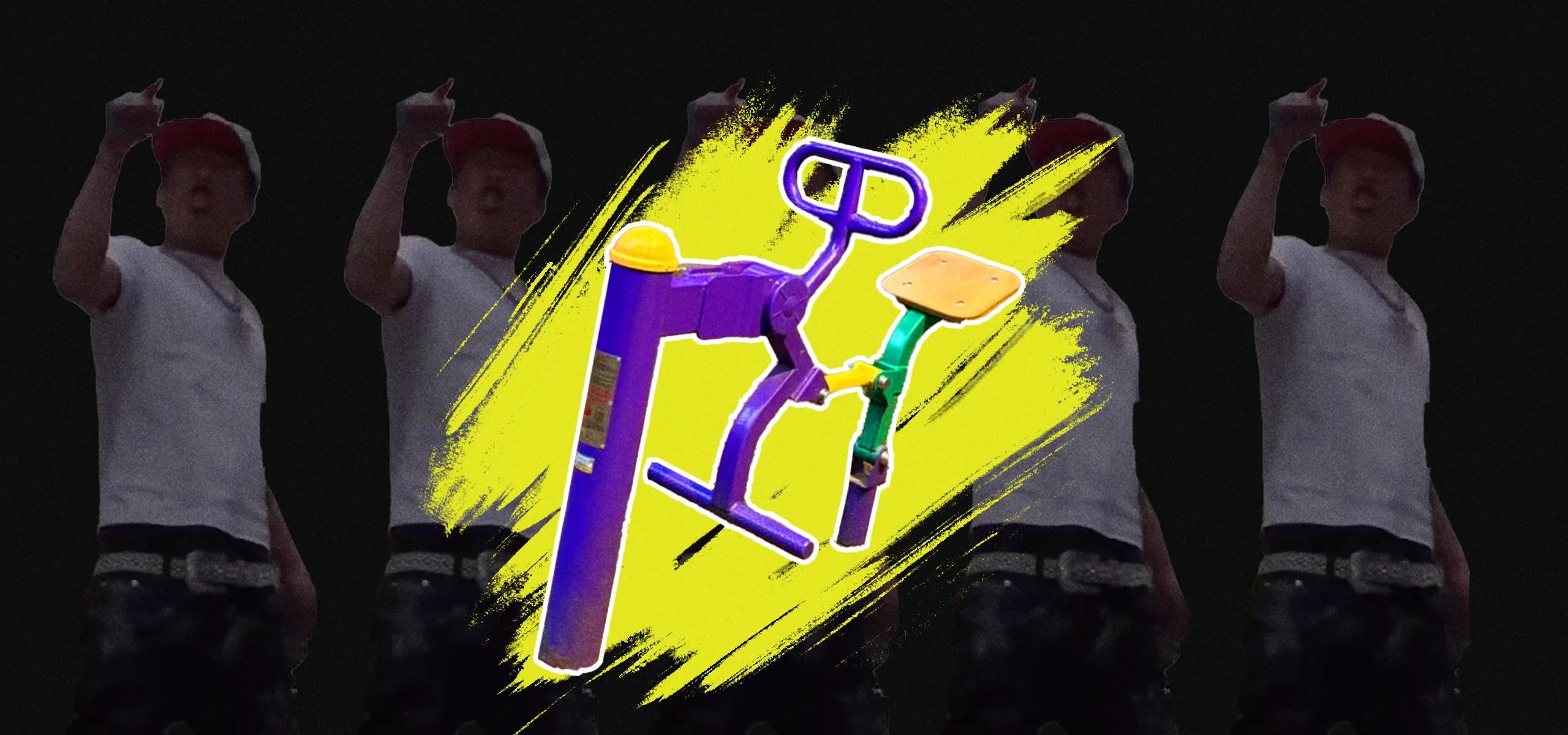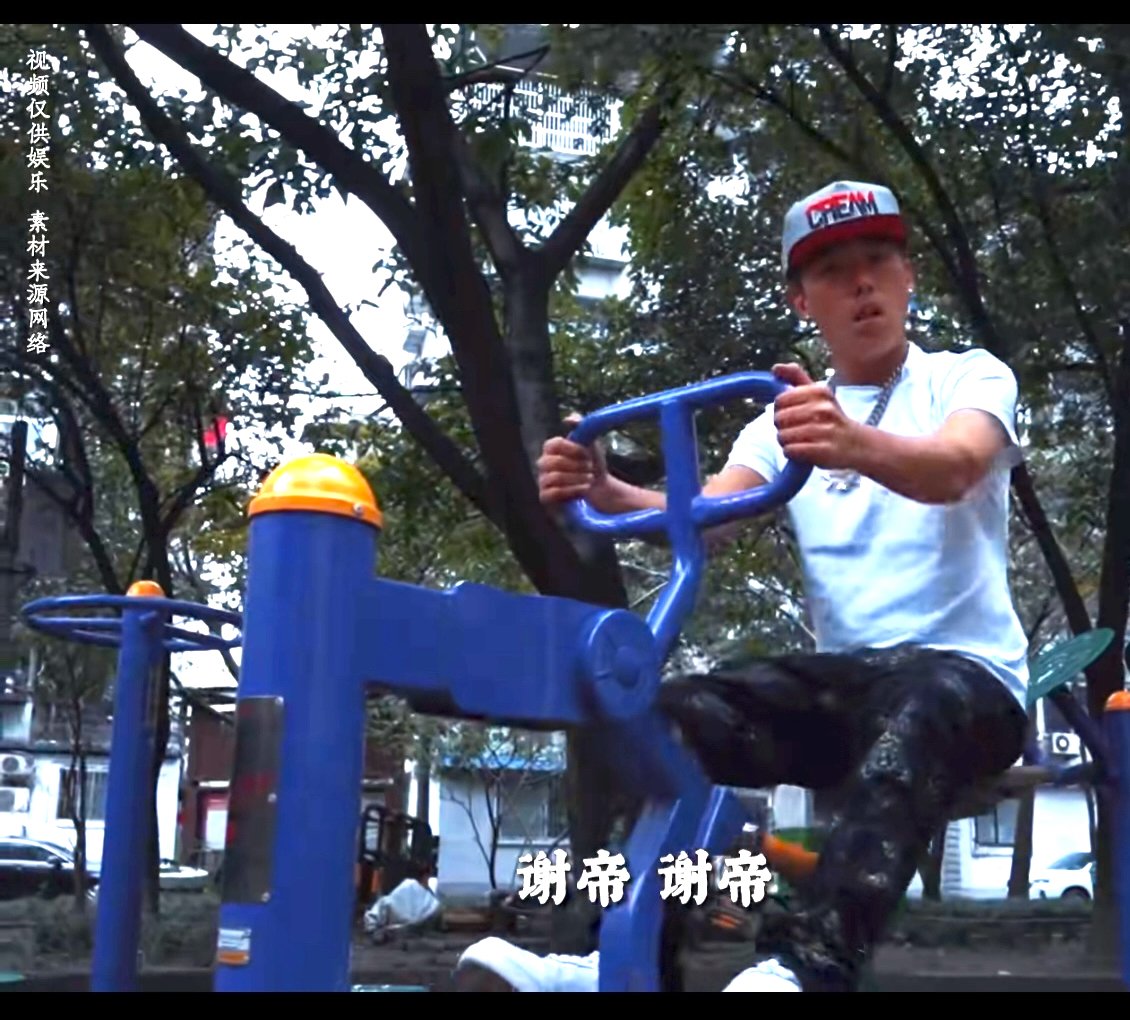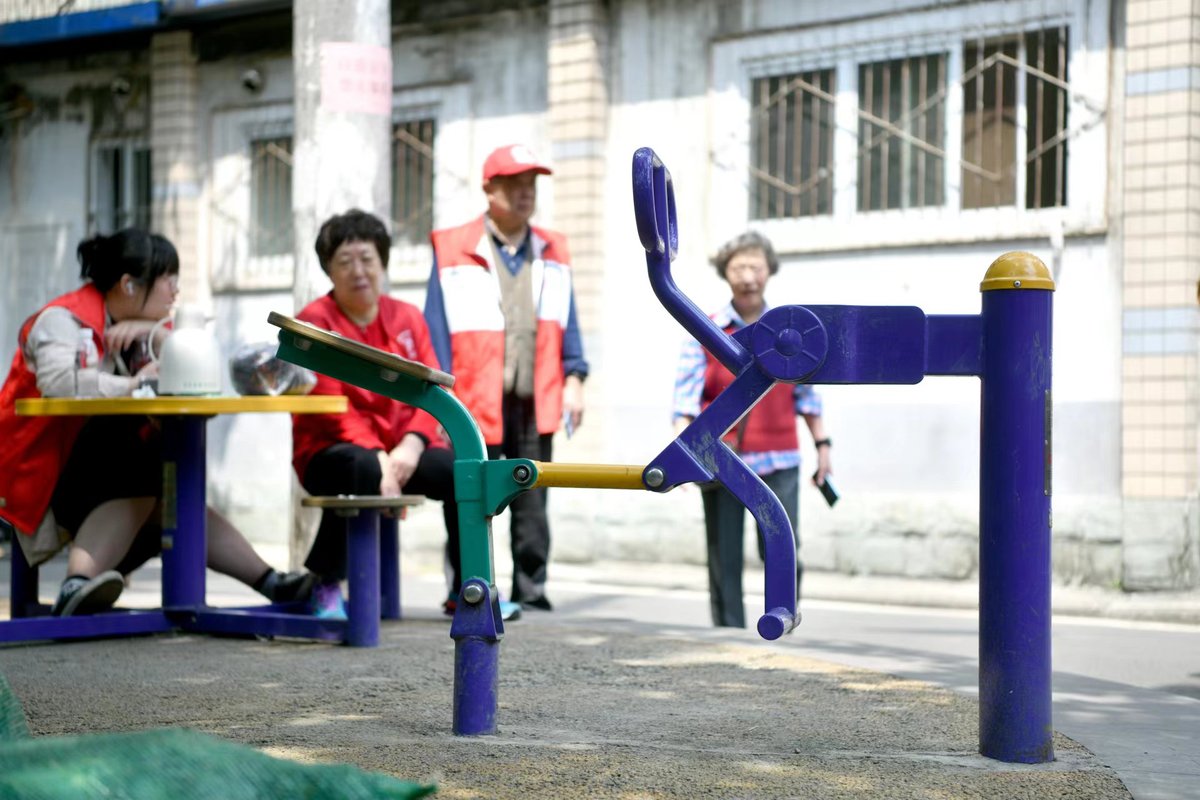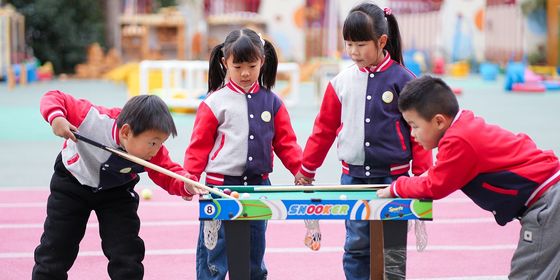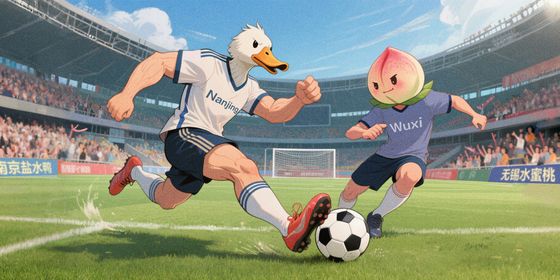How a rapper’s diss track turned a single piece of exercise equipment in a small community gym into the latest viral travel destination
China’s newest Disneyland is a sensation. The “resort” in Chengdu, Sichuan province, is somehow equal parts exceptionally underwhelming and wildly popular. It has attracted huge crowds, thousands of influencers, and millions of followers online. But the park, located in the outdoor gym of a sleepy residential compound, is by far the most basic in the country. A single mundane piece of exercise equipment is its sole ride.
This “Chengdu Disney,” as it’s been dubbed by netizens, has been trending since April 5, with thousands lining up to ride a purple arm and waist exerciser. But China’s newest (and perhaps dumbest) viral travel destination has nothing to do with the American entertainment giant. Instead, it rose to fame with a diss track from Sichuan rapper A’eryida, better known as Nuomi. After being eliminated in the first round of the popular reality show The Rap of China, Nuomi took aim at one of the show’s mentors, Xie Di, through a music video posted on Douyin (China’s version of TikTok) on March 26.
In one scene in his video, Nuomi rides the fitness equipment, thrusting his waist back and forth to the beat of the music while singing “I want to diss you (我要diss你),” a phrase that sounds like “I want Disney (我要迪士尼)” in Chinese. Mesmerized by the catchy lyrics and the rapper’s awkward motions, netizens soon pinpointed the outdoor gym’s location and rushed over to recreate the scene. Hundreds of people visited during the Qingming Festival holiday on the first weekend of April, while a related hashtag has been viewed over 120 million times on the microblogging platform Weibo. Nuomi has gone from a little-known rapper two weeks ago to having over 2 million followers on Douyin. Multiple online map applications have added “Chengdu Disney” as a location, further stoking the flames of this viral trend.
The countless videos of mainly young revelers awkwardly thrusting and trying to look enthusiastic on the most basic equipment have left many baffled. “I’ve never been more speechless…It’s just a piece of fitness equipment in a residential compound,” reads one Weibo post with over 200 comments and 80 “likes.” Some have joked that more people have ridden the fitness equipment than even tech giant Xiaomi’s much-hyped first electric car model released the week before.
When the meme hit, 22-year-old surnamed Du from Kunming, Yunnan province, was in Chengdu for business. He went to check out the site and rode the equipment. “It blew up because, on the one hand, young people are more inclined to follow trends and accept new things, especially with the help of the internet. On the other hand, as everyone’s material life has become abundant, their spiritual life is somehow lacking,” Du told Shanghai-based media The Paper.
Many suggest Chengdu Disney is an outlet for young people, increasingly burdened by a slowed economy and toxic work culture, to release stress or “go mad.” Just like in China’s real Disneylands (one in Hong Kong and another in Shanghai), in this small gym, people can release their inner child and have others cheer them on. According to state media outlet Guangming Net, the core of the trend lies in people “seeking a sense of existence and validation.” “For the participants, following the trend can at least bring them happiness,” it commented in an article published on April 11.
Chengdu Disney is also perhaps the zenith of 打卡 (daka) tourism, where travelers visit internet-famous, social media-friendly spots as ends in themselves. Anything and anywhere can be a popular tourist spot if it is hot enough on social media. Many places have recently ridden waves of virality to attract tourists (Zibo, for example), but Chengdu Disney may be the most unfathomable.
Some have criticized the trend for being brainless and a nuisance for locals. While Shanghai’s Disneyland is equipped to handle tens of thousands of visitors daily, the Chengdu version is in a regular residential block, home to mainly elderly residents who have filed dozens of complaints about the crowds, loud singing, and general disturbance. Police have turned up to keep the tourists in order. Nuomi has even posted a video on Douyin, urging his fans to “go during regular hours and try not to disturb the rest of grandmas and grandpas living there.”
But Chengdu Disney’s magic keeps flowing. Local authorities say they will keep the doors open but have prohibited singing at the site. Volunteers are now managing the long queues, setting up signs, directing visitors, and shushing loud tourists. They have also restricted the outdoor workout space’s capacity to 20 people at a time. The site remains free, at least—Shanghai Disney charges up to over 700 yuan per ticket.
Netizens are pleased it hasn’t shut down, with many attributing it to Chengdu’s long-held reputation as a relaxed and welcoming city, less strict and busy than places like Beijing or Shanghai. The happiest city in China for 15 consecutive years (according to Oriental Outlook, a magazine owned by Xinhua News Agency) now has “the happiest place on earth” as an attraction.
The local tourism bureau has embraced the virality, posting videos featuring Nuomi and his songs to attract visitors. Almost 5 million visited during the recent Qingming holiday, though it’s unclear how many came for the exercise equipment.
Crowds are still flocking to the new attraction. People dressed as Disney characters like Snow White and Mickey Mouse have shown up, taking photos and lip-syncing to Nuomi’s rap. There are posters for sale and netizens have designed a park logo based on the official Disney one. Visitors can buy souvenir plastic replicas of the gym equipment for 19 yuan. (There is no word from Disney’s notoriously lawsuit-happy legal team on repercussions for these potential copyright infringements.)
It’s not exactly what Nuomi hoped for from his diss track. During a livestream on April 10, he told his followers the song was supposed to intimidate Xie Di, not provoke laughter. “I hope people can focus on my music in the future because this is my truth,” he said. But it’s boosted his profile at least. On April 9, he launched a new song with Know Know, another mentor from The Rap of China, with the video set in Shanghai’s real Disney Park.
The trend might also be good marketing for the giant American entertainment company, with the knock-off theme park’s popularity sparking calls for Disney to open a real version in Chengdu. “[The virality] reflects the desire and significant market demand for Disneyland among the people of Chengdu,” one user wrote on the mayor’s official online suggestion platform, imploring the government to invite Disney into the city. (A local government bureau replied that they welcome all companies to invest.)
For now, though, Mickey and friends can wait. The hottest ride in China is a purple outdoor exercise machine—until the next inexplicably viral travel spot emerges.





